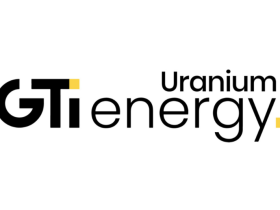The S&P/TSX Venture Composite Index (INDEXTSI:JX) was on the decline last week, closing at 598.06.
While it fared better than Canada’s main index, which sank to its lowest point since March, the TSX Venture index still fell 2.58 percent. Energy stocks are reportedly facing hurdles, as are tech and real estate companies.
Against that backdrop, a variety of TSXV-listed resource stocks were on the move last week. Read on to find out which companies rose the most during the five day period and what was affecting their share prices.
1. Golconda Gold (TSXV:GG)
Weekly gain: 46.15 percent; market cap: C$15.32 million; current share price: C$0.19
Golconda Gold is a mining and exploration company working in South Africa and New Mexico. Its Galaxy mine in South Africa produced 9,979 ounces of gold last year and 1,584 ounces in Q1 of this year. In New Mexico, Golconda owns the Summit mine, which has been on care and maintenance since 2013, as well as the Banner mill and flotation plant.
Although Golconda hasn’t released news since sharing its Q1 results in late May, its share price climbed throughout last week to reach a weekly high of C$0.22 on Thursday (June 22).
2. American Eagle Gold (TSXV:AE)
Weekly gain: 40.63 percent; market cap: C$19.76 million; current share price: C$0.225
American Eagle Gold is focused on its NAK copper-gold porphyry project, which is located in Central BC, Canada. In early May, the company announced a strategic investment in the asset from Teck Resources (TSX:TECK.A,TSX:TECK.B,NYSE:TECK); it received proceeds of C$2.96 million via a flow-through financing.
On June 12, American Eagle Gold commenced its 2023 drill program at NAK, which will be fully funded by the financing. The program will encompass 7,000 meters of drilling. The company didn’t release news last week, but its share price jumped from C$0.16 to C$0.23 between Tuesday (June 20) and Wednesday (June 21).
3. Canuc Resources (TSXV:CDA)
Weekly gain: 40 percent; market cap: C$16.06 million; current share price: C$0.14
Canuc Resources has its San Javier silver-gold project in Sonora, Mexico, and gains income from the producing MidTex natural gas project in Texas, US, at which it has interests in eight wells. The company has completed a series of private placement financings in 2023, with the most recent being earlier in June; it plans to use the proceeds for its 2023 exploration program at San Javier.
Canuc didn’t put out news last week, but its share price rose throughout the week to peak on Friday (June 23).
4. Dynasty Gold (TSXV:DYG)
Weekly gain: 40 percent; market cap: C$13.47 million; current share price: C$0.35
Dynasty Gold is advancing its Thundercloud gold project in Ontario, Canada, and also owns the Golden Repeat gold project in Nevada, US. The company began its 2023 exploration program at Thundercloud in May; it will involve at least 5,000 meters of drilling and re-logging historical drill cores.
Last Tuesday, Dynasty Gold announced assay results from previously unsampled sections of two drill cores from its 2022 drilling. Mineralization has been extended in both, including one section that was expanded from from 51 meters to 73.5 meters at an average grade of 8.42 grams per metric ton gold. The company’s share price jumped significantly on the news and remained elevated throughout last week.
5. Tower Resources (TSXV:TWR)
Weekly gain: 35 percent; market cap: C$17.76 million; current share price: C$0.135
Tower Resources is a copper and precious metals exploration company with projects located in BC, Canada. In 2023, Tower is conducting a diamond drill program and a ground magnetic survey at its Rabbit North copper-gold project; the company’s other assets are the Nechako gold-silver-copper and More Creek gold-silver projects.
Last Thursday, Tower Resources shared the results of a ground magnetic survey, which the company said “identified encouraging trends at each of Tower’s three discovery zones and also at the head of the Durand Creek Train.” The company’s share price jumped on the news to peak at C$0.15 the next morning.
FAQs for TSXV stocks
What is the difference between the TSX and TSXV?
The TSX, or Toronto Stock Exchange, is used by senior companies with larger market caps, while the TSXV, or TSX Venture Exchange, is used by smaller-cap companies. Companies listed on the TSXV can graduate to the senior exchange.
How many companies are listed on the TSXV?
As of April 2023, there were 1,713 companies listed on the TSXV, 953 of which were mining companies. Comparatively, the TSX was home to 1,789 companies, with 190 of those being mining companies.
Together the TSX and TSXV host around 40 percent of the world’s public mining companies.
How much does it cost to list on the TSXV?
There are a variety of different fees that companies must pay to list on the TSXV, and according to the exchange, they can vary based on the transaction’s nature and complexity. The listing fee alone will most likely cost between C$10,000 to C$70,000. Accounting and auditing fees could rack up between C$25,000 and C$100,000, while legal fees are expected to be over C$75,000 and an underwriters’ commission may hit up to 12 percent.
The exchange lists a handful of other fees and expenses companies can expect, including but not limited to security commission and transfer agency fees, investor relations costs and director and officer liability insurance.
These are all just for the initial listing, of course. There are ongoing expenses once companies are trading, such as sustaining fees and additional listing fees, plus the costs associated with filing regular reports.
How do you trade on the TSXV?
Investors can trade on the TSXV the way they would trade stocks on any exchange. This means they can use a stock broker or an individual investment account to buy and sell shares of TSXV-listed companies during the exchange’s trading hours.
Data for 5 Top Weekly TSXV Performers articles is retrieved each Friday after market close using TradingView’s stock screener. Only companies with market capitalizations greater than C$10 million prior to the week’s gains are included. Companies within the non-energy minerals and energy minerals are considered.
Securities Disclosure: I, Lauren Kelly, hold no direct investment interest in any company mentioned in this article.
Securities Disclosure: I, Charlotte McLeod, hold no direct investment interest in any company mentioned in this article.





